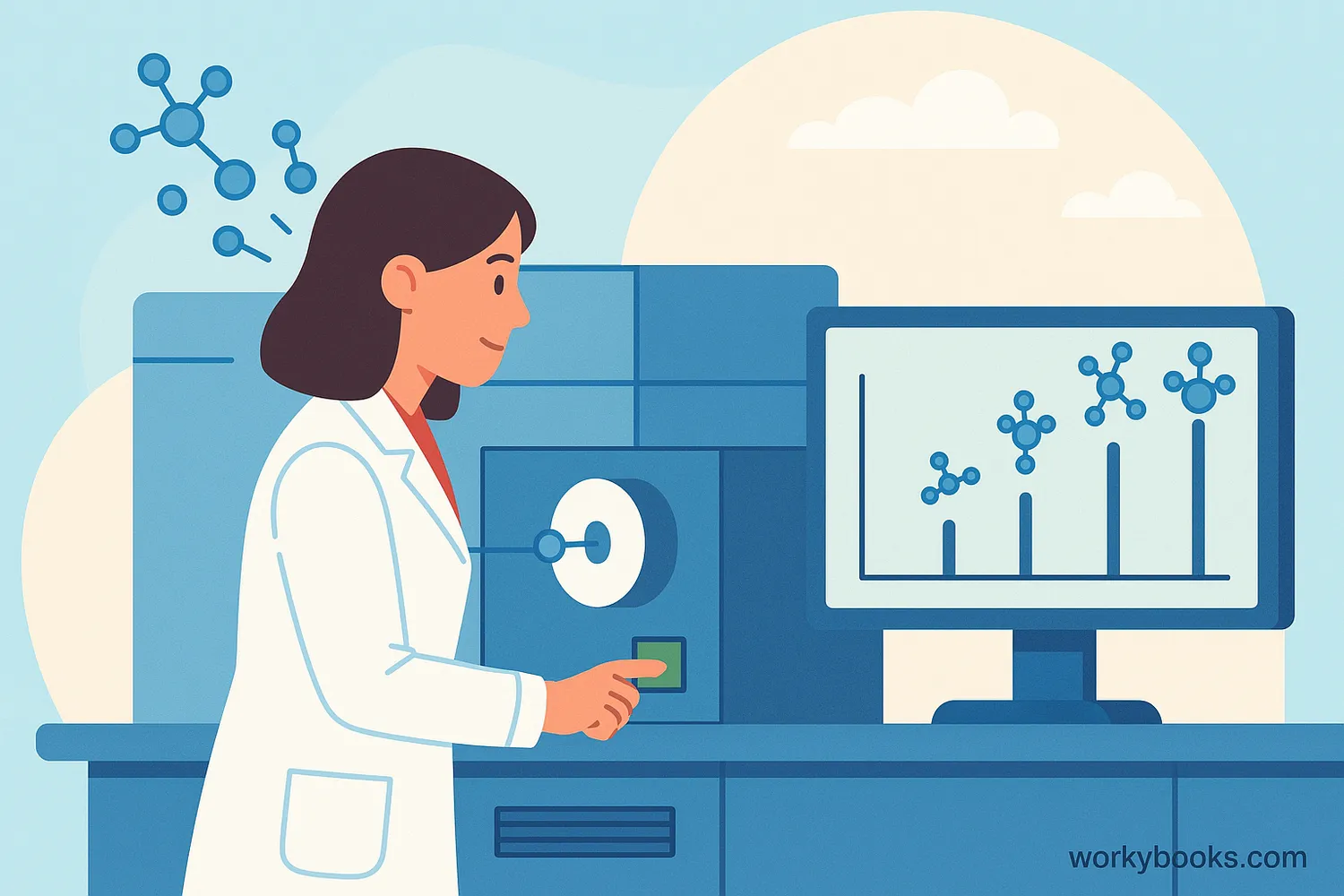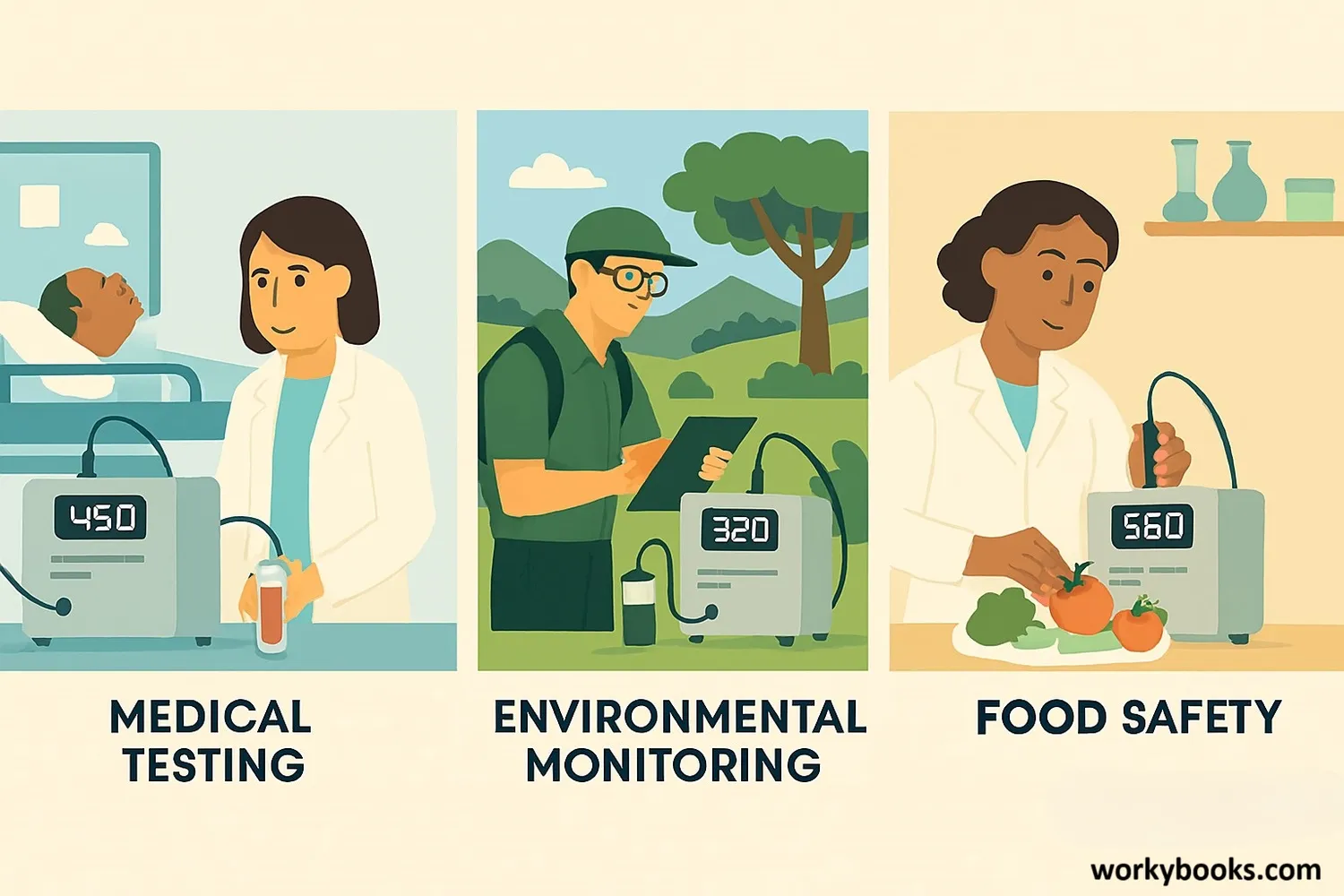Mass Spectrometry - Definition, Examples, Quiz, FAQ, Trivia
Discover how scientists identify substances by measuring their mass!
What is Mass Spectrometry?

Mass spectrometry is a scientific technique that helps identify different substances by measuring the mass of their molecules. It's like a super-precise scale that can weigh individual molecules!
Think of it as a molecular sorting machine. Scientists use it to figure out what something is made of by breaking it into tiny pieces and measuring how much those pieces weigh. This helps them identify unknown substances, check for impurities, or understand the structure of complex molecules.
Did You Know?
The first mass spectrometer was developed over 100 years ago, in 1912, by British scientist J.J. Thomson!
How Mass Spectrometry Works
Mass spectrometry works in several steps. Here's how scientists use this amazing tool to identify substances:
Ionization
The sample is vaporized and molecules are given an electrical charge
Acceleration
Charged molecules are pushed by electric fields
Deflection
A magnetic field separates molecules by mass
Detection
A sensor records which molecules hit it and creates a pattern
The pattern created is called a mass spectrum. It looks like a graph with peaks at different masses. Scientists can read this pattern like a fingerprint to identify exactly what substances are in the sample.
Real-World Connection
Mass spectrometry is used in space exploration! NASA's Mars rovers have mass spectrometers to analyze Martian soil and rocks.
Why Mass Spectrometry is Important

Mass spectrometry is an incredibly useful tool that helps us in many areas of life and science:
Medical Testing
Helps diagnose diseases, detect drugs, and monitor treatments
Environmental Science
Detects pollutants in air, water, and soil to protect our planet
Food Safety
Checks for contaminants and ensures our food is safe to eat
Without mass spectrometry, we wouldn't have:
• Advanced medical testing for diseases
• Effective monitoring of environmental pollution
• Reliable food safety checks
• Many forensic science techniques used in criminal investigations
Mass spectrometry helps scientists make important discoveries that improve our health, protect our environment, and keep us safe!
Mass Spectrometry Knowledge Check
Test your knowledge with this quiz! Answer all 5 questions to see how much you've learned.
Frequently Asked Questions
Here are answers to some common questions about mass spectrometry:
Interesting Facts About Mass Spectrometry
Discover some amazing facts about mass spectrometry!
Nobel Connection
Several Nobel Prizes have been awarded for work related to mass spectrometry, including the 2002 Chemistry Prize for developing methods to identify biological molecules.
Out of This World
The Mars Curiosity rover has a mass spectrometer onboard called SAM (Sample Analysis at Mars) that has detected organic molecules on the Red Planet!
Newborn Screening
Hospitals use mass spectrometry to screen newborn babies for over 50 different genetic disorders from just a few drops of blood, allowing for early treatment.
Sports Testing
Mass spectrometry is used in anti-doping testing for athletes. It can detect performance-enhancing drugs even months after they were used.





